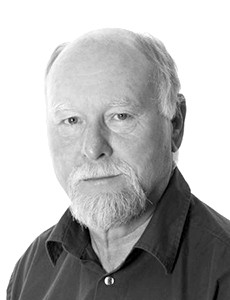Today, a project meeting is taking place in Oslo, with all the Norwegian partners gathered at NIFU to discuss project progress, plans ahead, and in particular upcoming work in subproject D.

Today, a project meeting is taking place in Oslo, with all the Norwegian partners gathered at NIFU to discuss project progress, plans ahead, and in particular upcoming work in subproject D.

On 10th of June, the first results from the survey to study program leaders was presented in Oslo at a NIFU seminar. Bjørn Stensaker presented some of the key results from the survey.
During the seminar, the results were discussed with a panel including Andreas Snildal (NOKUT) and Therese Eia Lerøen (NSO). Commentary was provided by Eirik Welo (Faculty of Humanities, University of Oslo) and Vibeke Bjarnø (Oslo and Akershus University College).
NIFU is hosting a comprehensive project meeting for parts A, B and C of the project, with project partners attending from Norway and from Finland (University of Helsinki) and Denmark (Århus University).

Per Olaf Aamodt was presenting some of the key results of the comprehensive review of existing data sources in Norwegian higher education and their applicability for indicators on input, process and output quality. He argued that there is considerable data collected in the Norwegian system, but much of it is collected for other purposes than quality measurement.
“It is very exciting to see what data is available and what can it be used for, to have this comprehensive view on all data sources that we already have,” says Per Olaf Aamodt.
Project leaders for B and C also gave updates on the work done in the sub-projects. Monika Nerland, project co-leader for part C updated the whole project team on the preparatory work for case studies in part C. Currently, work is underway to map the field and prepare for empirical data collection period that is about to start shortly. Observation studies in project part C will be carried out in spring and fall of 2016, accompanied with interview and document studies. Peter Maassen, project co-leader for part B gave brief overview of status in project B regarding study programme dynamics, as well as plan for work in the institutional cases studied in part B where main emphasis is to examine how work on quality on institutional level is related to what is taking place on study programme level.
The six case studies in both sub-projects overlap, and will allow for a comprehensive analysis – from institutional strategies to quality work on various levels, as well as the actual teaching and learning practices that take place.
In addition to work with the whole group, the meeting included more detailed work in projects part B and C to discuss sub-project specific issues and current work in the sub-projects.
On Friday, the project meeting will continue with discussions in the sub-projects and plan ahead for the remaining of the work this spring.